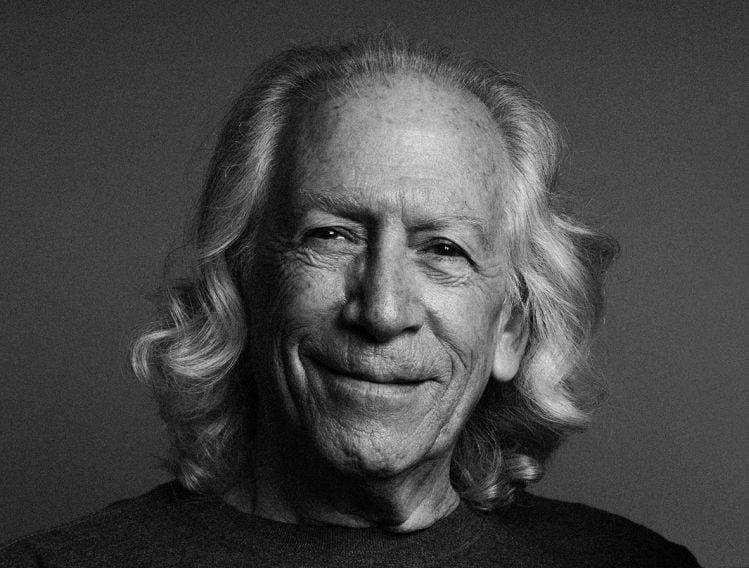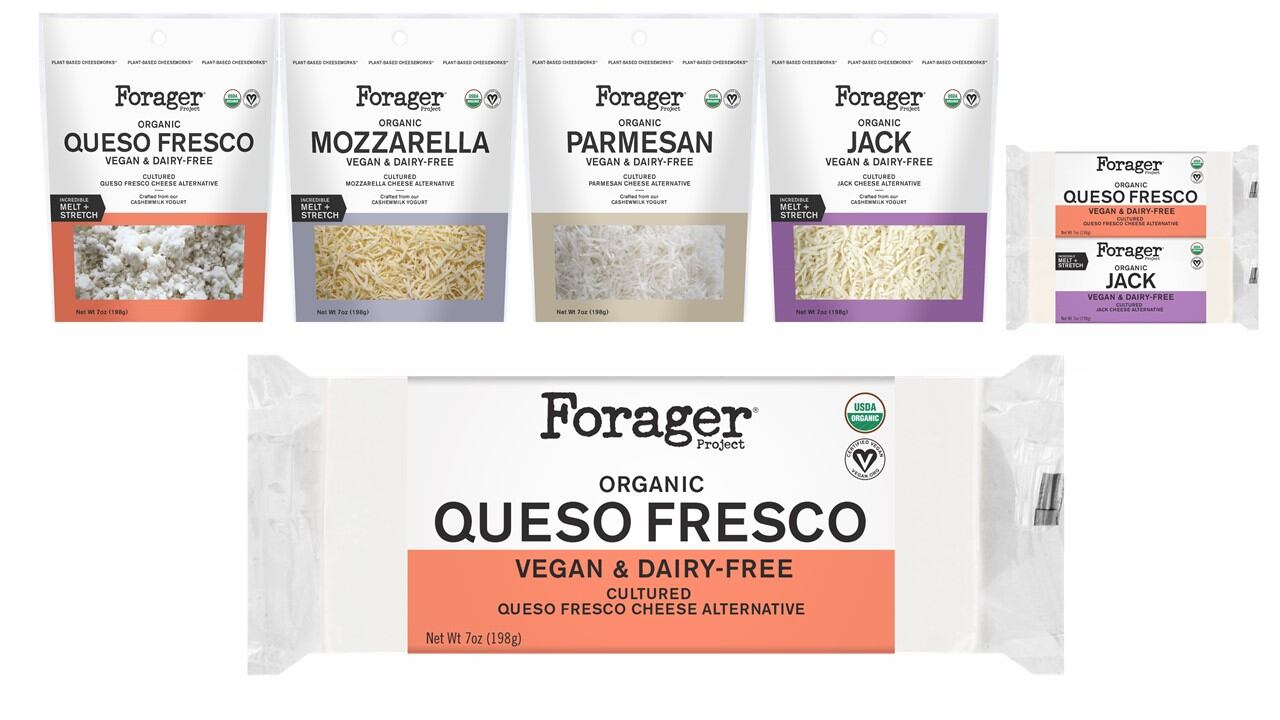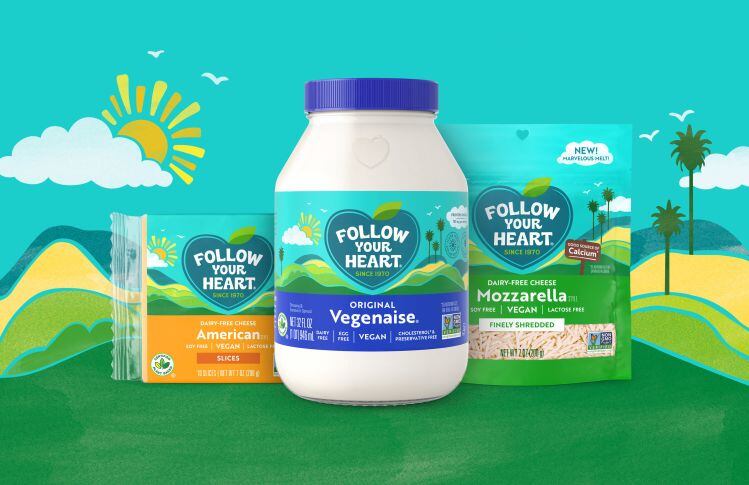“To be completely transparent about it, I’ve always been in the ‘stay independent’ camp” said Goldberg, a pioneer in the plant-based foods arena who was waxing lyrical about vegan mayo and cheese decades before many investors, big CPG companies, or mainstream consumers, started paying much attention.
“I’ve always wanted full control over the company. I didn’t want our path to be driven by next quarter’s earnings call,” added Goldberg, who will remain with Follow Your Heart along with all staff members at the company, which will retain its California-based HQ and solar-powered manufacturing facility.
“So what changed? I guess it was a combination of factors. My business partner* [Paul Lewin] passed away about a year ago and that makes you start feeling your mortality, but you also get a sense of urgency.
“And while the idea of saving the world through a plant-based diet has always been a kind of amorphous goal, at this point, it seems so much more urgent, and even though Follow Your Heart has enjoyed very good growth – we never grew less than double digits – it’s not enough to keep up with what’s happening right now in this market. And I felt like for us to maintain a leadership role, we needed to accelerate our growth. It’s not about money as far as I am concerned; I make a good living.”
On the same page as Danone
Asked about how easy it would be to preserve the culture and ethos of the brand following the deal, he said acquisitive large CPG brands have increasingly recognized that their best bet is to leave their sexier bedfellows well alone, but give them the resources they need to expand more rapidly, rather than swallowing them under the corporate umbrella.
“As we got to know them [Danone], we became convinced that they were on the same page that we were on the things that mattered. We expect them to open doors for us, and new countries; we’re in Europe [where Danone has a very strong presence], for example, but it’s less than 5% of our sales, and to provide support in any way that they can. There’s a possibility that we might manufacture in Europe, at some point, for example.”
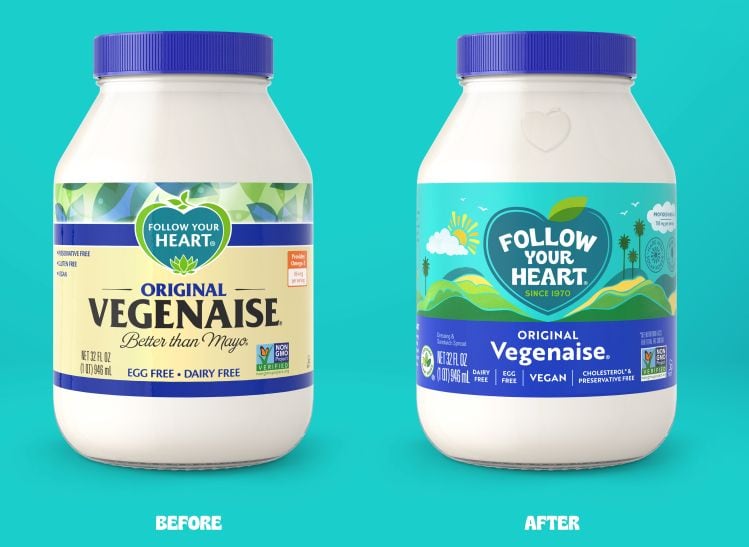
‘Vegan can be a dirty word to a lot of people’
Asked about the evolution of messaging in the dairy-free category, just the nomenclature shift from ‘vegan’ to ‘plant-based’ in the media and the industry has changed the conversation and broadened addressable market, he noted.
While consumers see ‘plant-based’ as a positive dietary choice or a food trend, following a vegan diet means committing to something full time, depriving yourself, or maybe even aligning yourself to a ‘cause’ that defines you such as animal rights or environmental activism, he said. Put another way, being a vegan is something that you are, not a trend you might follow.
“Vegan can be a dirty word to a lot of people, because they can be threatened by it,” said Goldberg. “But I do think things are changing dramatically. Who could have imagined the news about Beyond Meat [which has just struck deals with Yum! Brands and McDonald’s] five years ago?
“Do I think that animal agriculture is going to go away [completely]? No, I don’t think that at all, but even if you are talking about [plant-based products accounting for] 3% or 20% [of huge categories such as cheese or meat], that makes a real impact, globally.”
‘If you want to make something seeming to be like an animal product, that’s a very difficult thing to do without some level of processing’
So where does Goldberg sit in the debate over the level of processing in plant-based meat and dairy analogs (Lightlife, for example, recently irked rivals by comparing their ‘hyper-processed’ burgers with its ‘clean’ and ‘simple’ wares “developed in a kitchen, not a lab”)?
It’s inevitably a source of tension in the industry, he said, because plant and animal proteins and other ingredients don’t behave in the same way, and if you want to make the former precisely replicate the qualities of the latter, you need to meddle with them, to some extent.
“I started as a natural foods store owner so my true heart is in natural foods, so my desire is to make a food that’s a close to a natural food with the least amount of processing possible, but on the other hand if you want to make something seeming to be like an animal product, that’s a very difficult thing to do without some level of processing.”
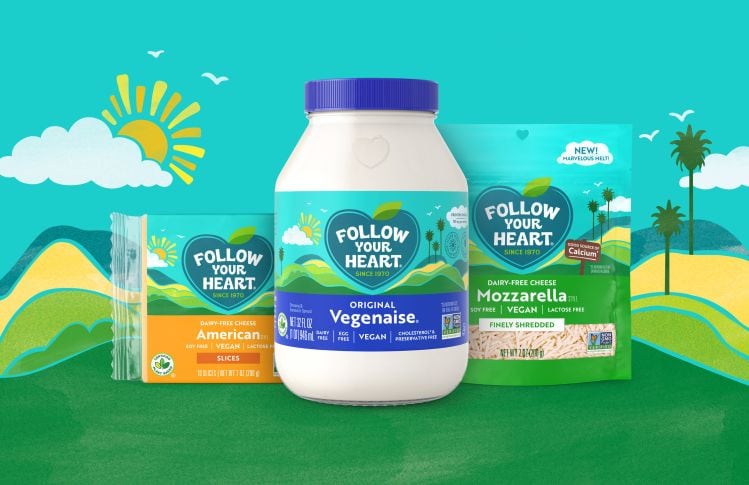
‘Plant-based cheese is our fastest-growing category’
Follow Your Heart makes plant-based cheese, the egg-free mayonnaise brand Vegenaise, plant-based sour cream, salad dressings, the VeganEgg, and has just launched squeezable pancake and waffle batter.
“All of our categories are growing, but cheese is our fastest-growing category,” said Goldberg, who said the company was working to a plan that would see revenues increase to around $350m by 2025, although these numbers “can probably be thrown out of the window now” as they were crunched prior to the Danone acquisition, he said.
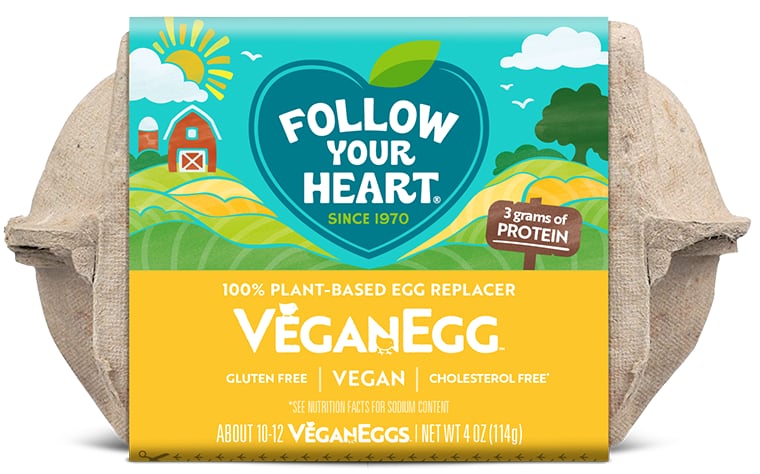
The VeganEgg, which was originally formulated with algae protein, and is now based on soy protein, performs well as a scrambled egg alternative, but is not suitable for every application, he said.
“You can use it in baking, but it gets a bit more complicated, so we’re working on a formula that’s specifically for baking. That product I believe will really reach its potential once it starts replacing egg in foodservice.”
So what’s next? Will he buy a yacht and head to the Bahamas, or remain in the thick of it?
“I am continuing to work as CEO,” said Goldberg. “However, at this point, Earth Island is really a global play, and I’d like to focus my energy in the future back a little bit more locally to our communities, and I think I’ll find that to be really satisfying.”
*The other co-founders Michael Besançon and Spencer Windbiel sold their stake in the business to Paul Lewin and Bob Goldberg.
- Read our interview with Danone North America CEO Shane Grant HERE.

